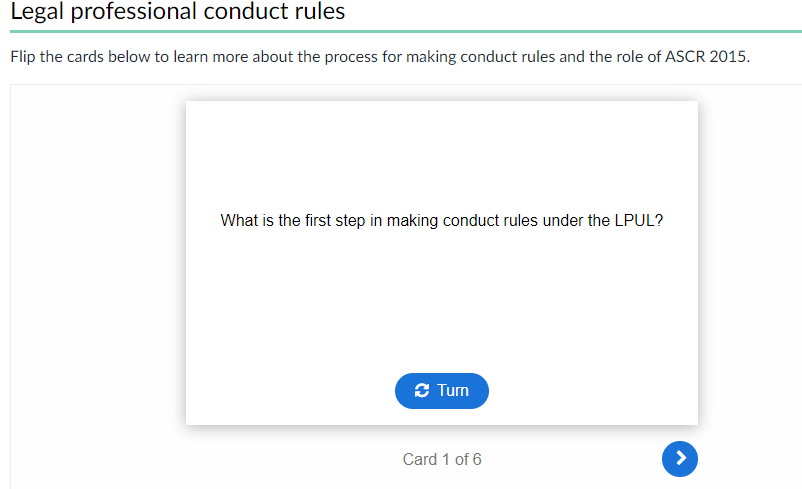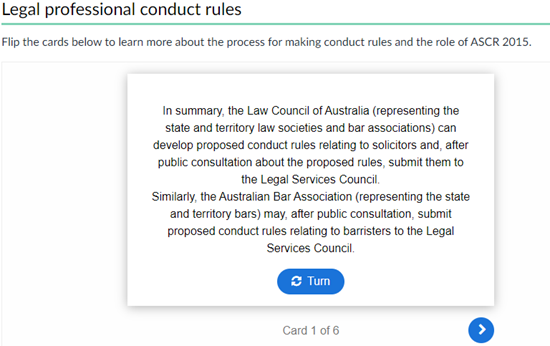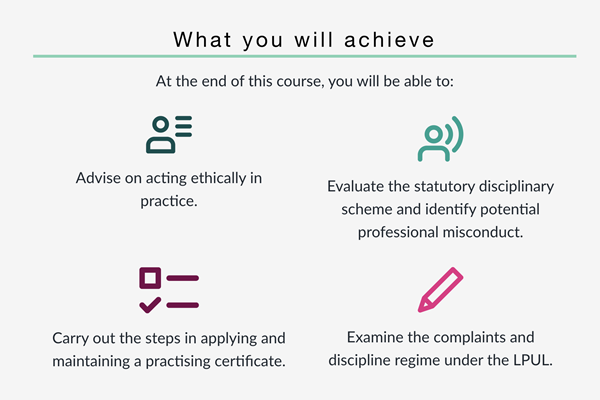With the rise of online learning, it’s easier than ever to collect your CPD points at a time – and place – that suits you.
But not all online courses are created equal. There are some lemons out there. And you may have already tasted one or two!
So how do you know if an online, or on-demand course will stack up?
Here we explore the six markers of an excellent on-demand course. To help you find one that offers both education – and enjoyment.
1. Bundles or subscriptions that add value
For legal professionals, three things in life are certain: death, taxes and your annual CPD requirement.
So finding a course provider that offers a bundle or subscription model can reduce your costs and provide a variety of subjects to explore.
This is particularly relevant if you’re in management – and need an on-demand, cost-effective CPD solution for your team’s needs.
DID YOU KNOW?
At the College, we offer interactive on-demand single courses, bundles and digital subscription options for individuals and for legal teams.
2. Delivery modes that cater to different learning styles
Many online courses offer only one mode of delivery: video presentations, with a printable download of the transcript. (So you can follow along and highlight the odd note.)
But this traditional teaching model doesn’t work for most people.
Variety in delivery style not only makes learning more engaging. It gives you the agency to influence your learning experience, too.
At the College, our on-demand courses come in three delivery modes:
- Our step-by-step courses allow you to experience the steps involved in a particular area of legal practice – not just the theory.
- Our Skills series requires you to put your focus skill into practice.
- Our guide courses provide an overview on a particular area of law.
DID YOU KNOW?
Many states cap the number of CPD points you can claim for private, non-interactive study. So choosing an on-demand course that requires active participation isn’t just good educational practice. It will also assist you to meet your CPD compliance requirements.
3. Interactive opportunities to test your understanding
There’s nothing like a little practice to really test how well you understand a concept. So it’s vital to choose a course that lets you apply your new knowledge.
Look for courses that include a variety of interactive activities – not just a few multiple-choice questions.
The course should also provide feedback so you can assess your responses as you go.
DID YOU KNOW?
Our on-demand courses and bundles offer interactive activities like flip cards, quizzes and drafting exercises.


4. Clearly identified – and communicated – learning outcomes
A learning outcome is a statement that explains what you’ll be able to do or know by the end of a course.
For example, the learning outcomes for our Drafting skills: commercial documents on-demand course is: “On completion of this course, you will be able to recognise the impact of punctuation on meaning and on interpretation.”
So why are learning outcomes so important?
- They demonstrate a strategic approach to selecting the theory and developing the learning activities for the course. So every activity and assessment has value.
- They allow you to track your progress against skills or areas of knowledge in the course. This helps you identify – and focus on – your biggest improvement areas.
When deciding on an on-demand course, check that learning outcomes are present and match the skills or knowledge you want to grow.
5. Access beyond the end date
Can you access course materials as you work through the course and after you have finished the course?
It’s worth finding out, because you might need to access these materials for all sorts of reasons, such as:
- Life got in the way, and you couldn’t finish the course as planned
- You need to revisit something you learned
- You’re starting a new project, and skills or information that was ‘nice to know’ are now critical
DID YOU KNOW?
At the College, we provide an extended access period on our on-demand courses, so you can revisit if the need arises.
6. Quality resources that you can keep
Taking notes is standard practice. But sometimes, you want to actively listen and engage in a course – without the distraction of trying to catch every word on paper.
That’s where printable materials come in handy.
Look for slides, checklists, summary documents and workbooks that complement the learning program – and that you can print.
They’re a valuable resource you can return to when you need a refresher.
Ready to collect your next round of CPD points – on your terms?
The College of Law offers live and on-demand courses that are focused, purpose-driven and outcomes-based.
Browse our most popular on-demand courses today.
























































![How to handle Direct Speech after Gan v Xie [2023] NSWCA 163](https://images4.cmp.optimizely.com/assets/Lawyer+Up+direct+speech+in+drafting+NSW+legislation+OCT232.jpg/Zz1hNDU4YzQyMjQzNzkxMWVmYjFlNGY2ODk3ZWMxNzE0Mw==)











































